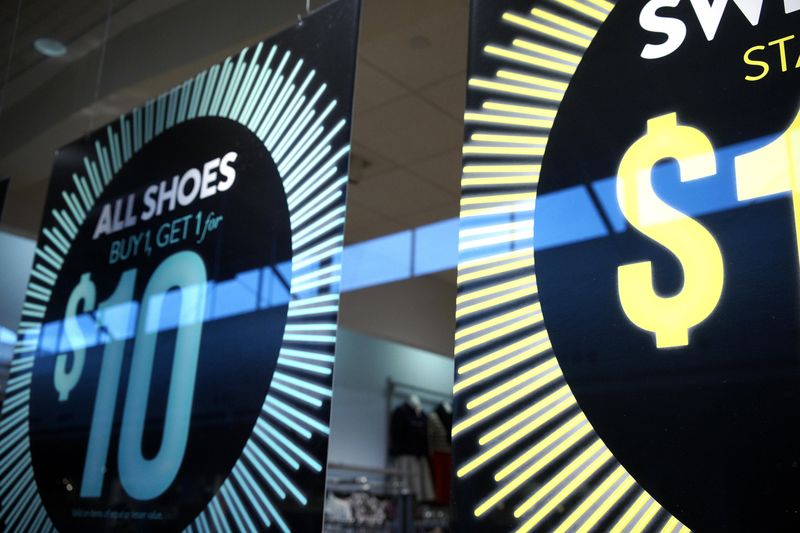By Geoffrey Smith
Investing.com -- U.S. stocks opened mostly lower on Friday after a second straight monthly drop in retail sales underlined the loss of momentum in the economy due to record Covid-19 infections around the turn of the year.
The mood wasn't helped much by an opening salvo of bank earnings that looked strong at first sight, but which belied a slowdown in lending trend, or by news of an SEC investigation into ExxonMobil (NYSE:XOM) amid doubts over the accounting for one of its most valuable assets.
By 9:40 AM ET (1440 GMT), the Dow Jones Industrial Average was down 174 points, or 0.6% at 30,817 points. The S&P 500 was down 0.4% while the Nasdaq Composite was just staying in positive territory.
Earlier, the Commerce Department had reported that retail sales dropped 0.7% in December, and also revised down November's figure to a 1.4% drop, rather than the 1.1% originally reported. The figures were a fresh reminder of the pressure on the retail sector from a pandemic which spread rapidly at the end of last year in the aftermath of the election and, in particular, the Thanksgiving holiday. U.S. infection rates and hospital admissions are only now starting to flatten off, while the number of daily deaths involving Covid is still running at nearly 4,000.
Producer price inflation for December and the New York Manufacturing Index for January also came in slightly below expectations.
The flurry of bank earnings that traditionally marks the start of earnings season got a muted response, despite headline numbers that were at first glance stronger than expected. However, the numbers presented by JPMorgan, Citigroup and Wells Fargo were all bolstered by the release of credit provisions booked earlier in the pandemic, which JPMorgan CEO Jamie Dimon warned didn't represent underlying trends. Revenue, which provides a better idea of ongoing dynamics, fell short of expectations at both Citi and Wells, and was not meaningfully above consensus at either JPMorgan or PNC Financial.
Wells Fargo (NYSE:WFC) stock fell 7.6% on the back of its report, while Citigroup (NYSE:C) stock fell 4.1% and JPMorgan (NYSE:JPM) stock escaped with a relatively moderate 1.3% decline. PNC (NYSE:PNC) stock fell 1.7%. The bank earnings are typically taken as a proxy for the broader health of the U.S. economy, and their ability to withstand a hard buffeting from Covid-19 last year was one of the fundamental supports of the broader market rally.
Elsewhere, ExxonMobil stock fell 4.8% after The Wall Street Journal reported that the Securities and Exchanges Commission had opened an investigation into its accounting practises, after a whistleblower alleged that employees had been forced to make aggressive assumptions on how quickly it could drill wells at its fields in the Permian Basin in Texas, in order to justify the high valuation the company wanted to assign to the assets.
Exxon's decline went hand-in-hand with a 2% drop in Crude Oil Futures. Both had become susceptible to profit-taking after a sharp rally in the last week on optimism over the path of U.S. and global oil demand under the influence of heavy U.S. fiscal and monetary stimulus. The spending plans announced by President-elect Joe Biden on Thursday had little effect, however, having been already largely priced in.
